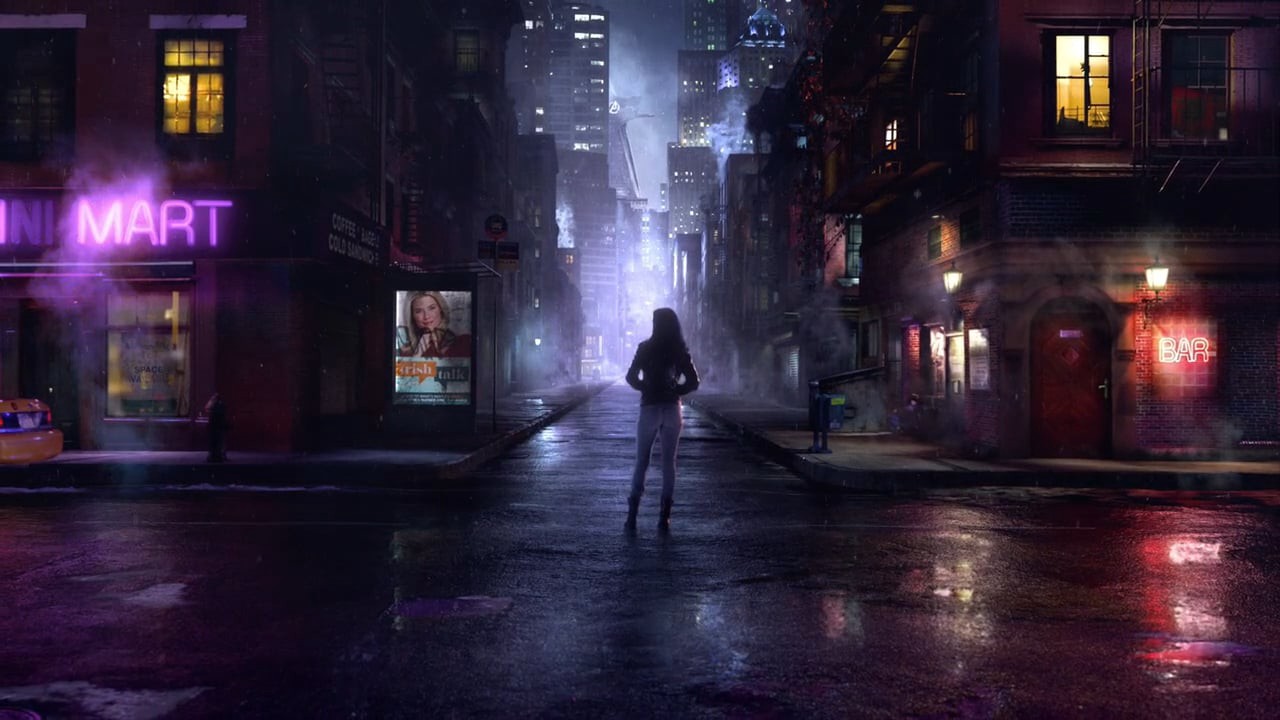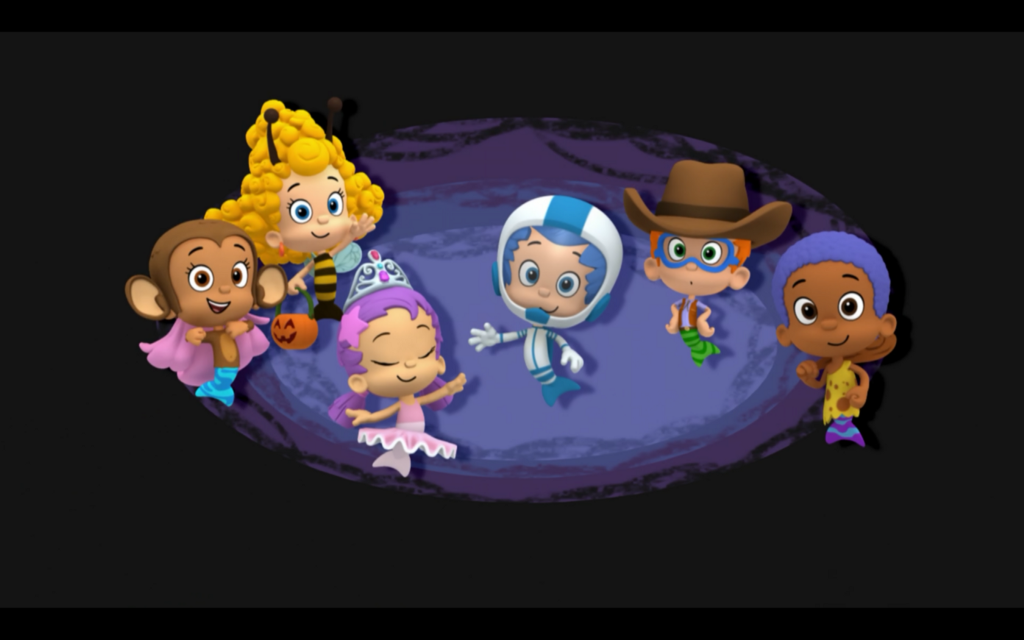Books & Culture
Me, My Anger, and Jessica Jones
How the TV series gets trauma and survival right

We were five minutes into the first episode of Jessica Jones when my husband asked me if I was going to be okay. It was right about when Jessica watches Luke Cage from a fire escape. While that scene isn’t especially triggering, it was still a valid question. As early as it was in the show, it was already pretty clear that Jessica Jones has PTSD, which, coincidentally, I had just been diagnosed with. More to the point, Jessica Jones is mad.
“You look angry. Are you okay?”
I can’t tell you how many times I’ve heard that from lovers, partners, friends, my parents, strangers on the street…. And yet, no matter how many times I heard it, the question always surprised me.
“I’m not mad. I’m fine.”
Denial. Reassurance. Always aimed at the questioner, though the real target was me. I had to be fine. I couldn’t not be fine, and I certainly couldn’t be mad for no apparent reason. If I were to contemplate how angry I actually was, I would have to acknowledge why, and that was something I spent the better part of my life trying to avoid.
If I were to contemplate how angry I actually was, I would have to acknowledge why, and that was something I spent the better part of my life trying to avoid.
I was molested when I was four. Molested. I hate that word. It’s ugly. It’s confrontational. It’s blunt. It’s uncomfortable. It’s also true, which is why I’ve left it in. It would be much easier for me say that I was abused. Abused is comfortingly vague. It implies terrible things without going into details. Molested, by comparison, is specific and precise. It gets up in your face, which makes it far more germane, in this case, than abused.
The revulsion I feel for that word is a microcosmic slice of the anger people have always asked me about. The anatomy of that anger is both complicated and specific. It’s an anger that was never just anger, but a humiliating mixture of anger and shame (another word I hate). This very specific anger hardwired my brain when I was so young that it became a permanent part of my emotional landscape, which made burying it so easy that I didn’t know I’d done it. It’s like the difference between climate and weather. Anger was my climate while sadness, happiness, worry and the rest passed through like sunshine and storms. Compared to the consistency of climate, weather is conveniently distracting, so I ignored my anger for decades, until a series of realizations forced my perspective to shift.
Anger was my climate while sadness, happiness, worry and the rest passed through like sunshine and storms.
These realizations were subtle and seemingly unconnected to the molestation. Social injustice, dystopias and stories of wrongful imprisonment made me physically ill. But while they don’t have anything obvious in common, they all explore aspects of the same thing — powerlessness in the face of emotional, social or institutional violence. While not the most obvious trigger, powerlessness underpins the trauma I experienced as a child, as well as the anger that grew out of it. Now, in hindsight, it makes intuitive sense, but no matter how many times I was triggered, it would be years before I could face it. I became an expert at denial, helped, in large part, by the fact that I looked nothing like trauma victims in pop culture and TV.
When I was growing up in the eighties and nineties, characters with PTSD weren’t what you’d call well developed. They were more like paper dolls than people — two-dimensional figures that furthered a plot, usually through addiction and flashbacks. I’m not a veteran, I’ve never had flashbacks and I’m lucky enough not to struggle with addiction. In short, I don’t fit the stereotype, so it was easy to dismiss trauma as the cause of my issues — hyper-vigilance, panic, depression, disassociation, and, yes, a big, black ball of anger.
I don’t fit the stereotype, so it was easy to dismiss trauma as the cause of my issues — hyper-vigilance, panic, depression, disassociation, and, yes, a big, black ball of anger.
The denial I kept myself in was a critical, if self-defeating, survival skill. Deep down, I knew something was wrong, but every time I failed to look like a rape survivor on Law & Order, I breathed a sigh of relief. According to that reassuringly broad diagnostic I had nothing to worry about. I couldn’t be traumatized. I was just being dramatic. I had nothing to compare myself to, which is why Jessica Jones resonated when nothing else had.
Specificity is critical when you’re dealing with real life trauma, and equally important in fiction. Two people could experience the same abuse at the same hand, and suffer vastly different effects. Flight vs. fight. Avoidance vs. confrontation. Anger vs. despair. Temperament and background determine posttraumatic stress as much as the trauma itself. That’s why stereotypes don’t work. It’s personal and deeply specific. Marvel’s Jessica Jones is a revolution of specificity. Not only does it feature complicated characters dealing (or failing to deal) with posttraumatic stress in multiple forms, it does so, somewhat ironically, by mining one of trauma’s few universal components — powerlessness in the face of a threat.
That’s why stereotypes don’t work. It’s personal and deeply specific. Marvel’s Jessica Jones is a revolution of specificity.
Whether it’s an abusive relationship or a landmine, the emotional hook in most traumas is the fact that something bad happens and you’re powerless to stop it. It’s a visceral, sickening, inescapable shot of cosmic vulnerability, which, for most people, is profoundly upsetting. While everyone responds differently in the aftermath, survival isn’t something the victim can control, and that loss of control is disturbing. It turns violence into trauma. It’s why Kilgrave, the villain in the first season of Jessica Jones, is so brilliant.
Kilgrave is a sociopath with the superhuman ability to control the wills of others, which basically makes him the personification of psychological trauma. If Kilgrave tells you to put your hand in a blender you do it — he overrides your ability not to. He could make you kill someone, or put a bullet in your head. He could turn you into a druggie, or his personal slave. He could tell you to smile, or eat this, or wear that. He could tell you to love him, and you would.
Kilgrave commandeers his victims by bending them to his will, which makes the damage he causes while pursuing Jessica Jones amazingly varied and widespread. He’s the uniting factor in every single bad thing that happens on the show, but rather than gloss over his psychological effect, (as many shows have done), the loss of control his victims endure highlights the individuality of each character’s response. Some seek revenge, while others try to heal. Still others buckle under the weight of Kilgrave’s manipulation. Everyone comes away from the same baseline experience, but the portrayal of each character’s reaction in the aftermath is painful and realistically personal.
Kilgrave is a sociopath with the superhuman ability to control the wills of others, which basically makes him the personification of psychological trauma.
Into this lands Jessica Jones, a sardonic underachiever who survived the death of her family as a teen. When Kilgrave develops a fascination with her superhuman strength, he overrides her will, gas-lights her and systematically rapes her. When she finally escapes, she is the Jessica Jones of the show — cold, traumatized and profoundly angry. Twenty years ago, her backstory would have been used to explain her drinking and her spectacular issues with intimacy. It would not have driven the plot of the entire first season. It’s a lot to ask of a traumatic event, but the show pulls it off, not because Jessica Jones is angry, but because she’s angry in complicated ways.

There is nothing generic about the feelings this character struggles with. She’s callous and hostile, but she also has a moral imperative; she isolates herself while working a job that forces social contact; she barely sleeps and she drinks a lot, but she also recites street names during panic attacks. She feels tremendous responsibility for the things she did while under Kilgrave’s control but rather than paralyze her, guilt fuels her to positive action. Like all of Kilgrave’s victims, she’s a fully rounded person who experienced the fundamental violation of her will. The difference with Jessica is that, as the show’s protagonist, her trauma contextualizes everyone else’s experience, underscoring the specificity of posttraumatic response.
Jessica Jones is paranoid, angry and disassociated, but she’s also violently engaged in life. She never denies her trauma, nor does she use it as an excuse.
Jessica Jones is paranoid, angry and disassociated, but she’s also violently engaged in life. She never denies her trauma, nor does she use it as an excuse. She goes on the offensive and attacks its source until it no longer exists. It’s the ultimate survivor’s fantasy — take back the power you lost by destroying the thing that took it away. It’s a powerful message delivered without compromise or apology over the course of an entire season. Given my background, Kilgrave’s brand of evil should have triggered me in a million different ways, but Jones’s grim defiance neutralized the effect of what should have been a minefield. That’s why, when my husband asked me if I was going to be okay, I honestly said yes.
Anger is not an attractive emotion. As social creatures we’re conditioned to deny unattractive emotions, but Jessica Jones does not. She allows her anger to fuel her — not always a sympathetic choice. That’s a rare thing in a protagonist, especially a woman. Just as I hate the word “molested” and avoided it for years, I avoided my anger for similar reasons — it’s uncomfortable and ugly. It’s less than sympathetic. It’s also a natural response to trauma and, as negative as it seems, it can have positive effects. Watching Jessica Jones harness her anger (to both good and ill effect) felt like witnessing a sea change, not just in how women are portrayed on screen, but in how popular media engages posttraumatic stress.
Jessica Jones allows her anger to fuel her — not always a sympathetic choice. That’s a rare thing in a protagonist, especially a woman.
I will never hunt down my Kilgrave. That person is long gone, and even if I could, the damage has been done. I know what it is to be powerless. I know how it feels to be angry when your life is basically good. I know the grind of trying to live with those feelings, and the self-imposed strain of protecting people from them. Watching Jessica Jones didn’t validate those feelings (I had to do for myself), but it did do something important. It mirrored the anger — the very specific anger — people had always seen on my face. Once I’d seen it, I had to acknowledge it. Once I had acknowledged it, I was free to move on from there.









